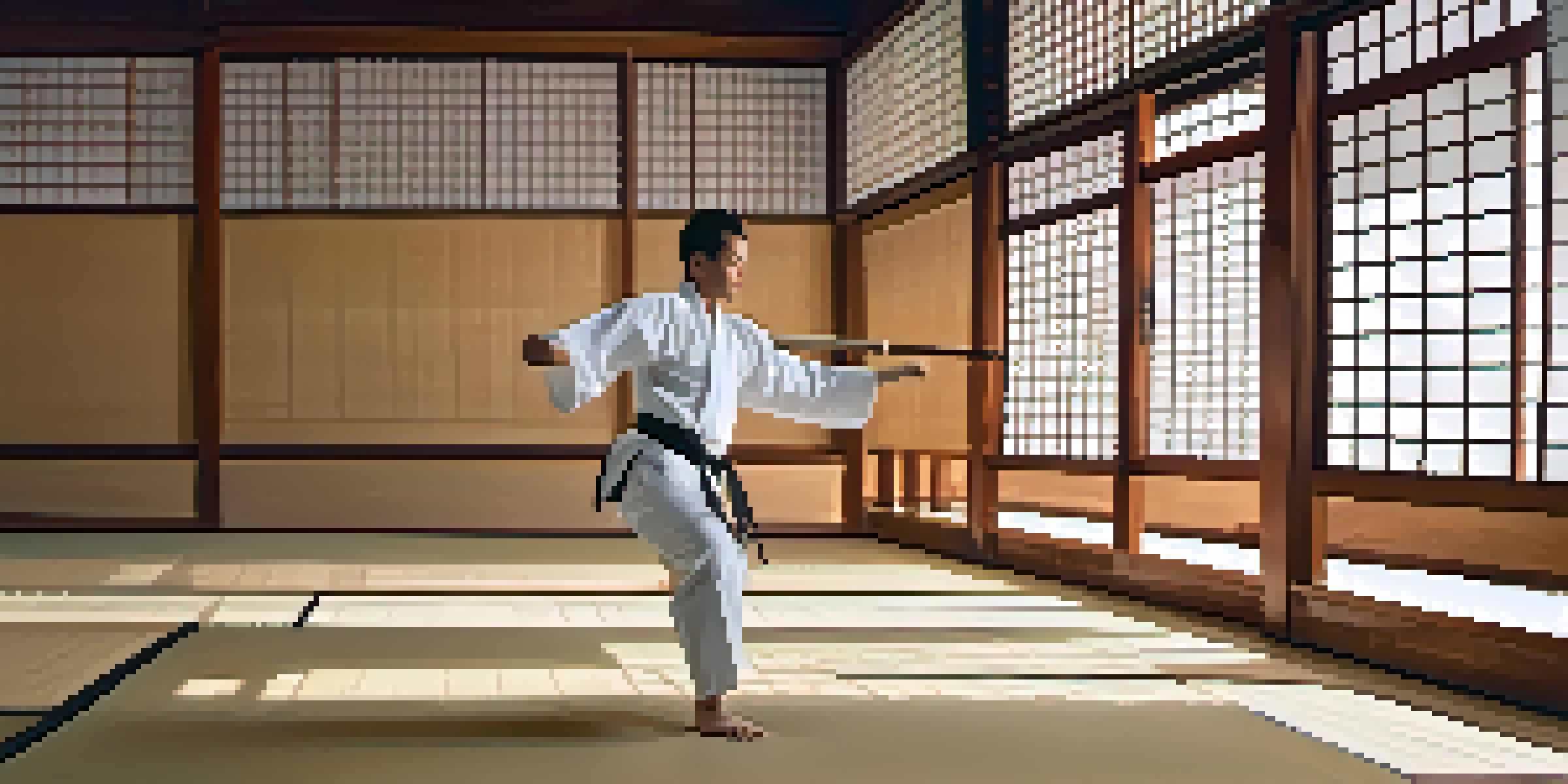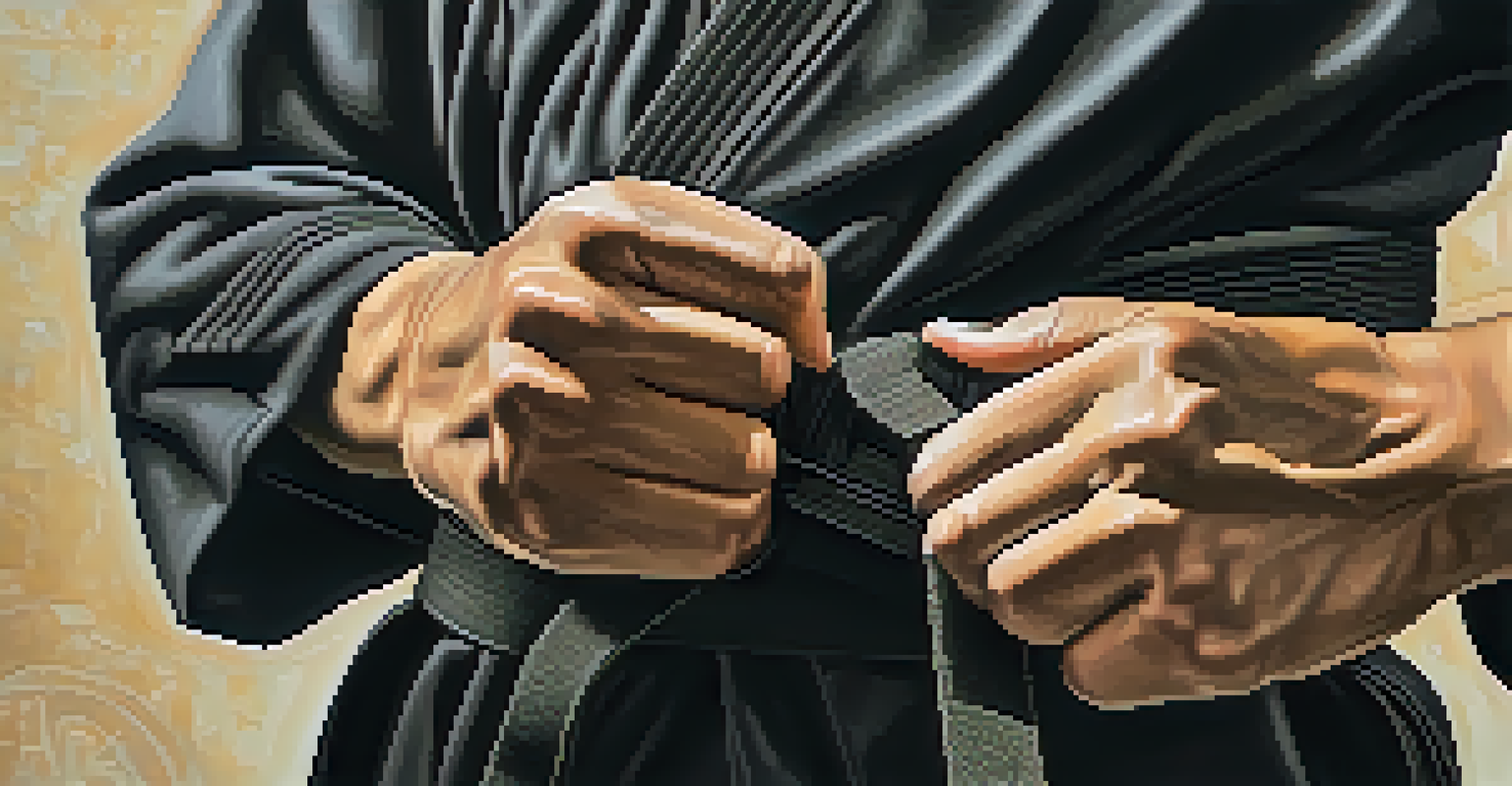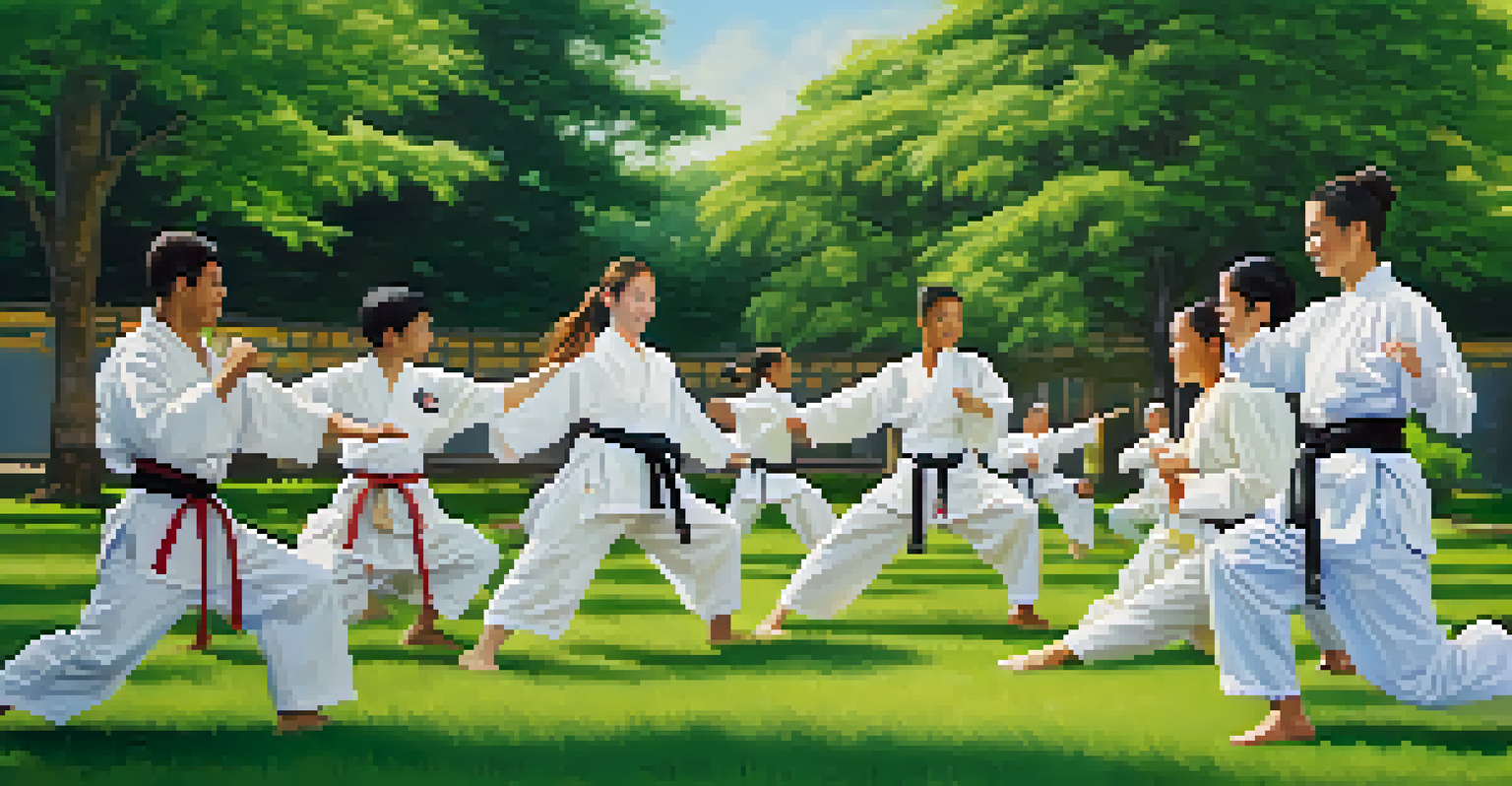Emotional Control: How Martial Arts Teach You to Manage Feelings

Understanding Emotional Control in Martial Arts
Emotional control is the ability to manage your feelings and reactions, especially in stressful situations. In martial arts, practitioners learn to stay calm and focused, even when facing challenges. This discipline is not just about physical strength, but also mental fortitude, which is essential for personal growth.
The greatest weapon against stress is our ability to choose one thought over another.
Martial arts training often involves scenarios that test your emotional responses. For instance, during sparring sessions, students must remain composed while facing an opponent's aggression. This practice helps them to recognize and regulate their emotions, turning potential frustration into focus.
The lessons learned on the mat extend beyond martial arts classes. Students often find that improved emotional regulation translates to everyday situations, such as handling stress at work or navigating personal relationships. This holistic approach to emotional control makes martial arts a powerful tool for personal development.
Breathing Techniques: The Foundation of Control
One of the first things martial artists learn is the importance of breath control. Techniques such as deep breathing help to calm the nervous system and reduce anxiety. By focusing on their breath, practitioners can regain composure when emotions threaten to overwhelm them.

For example, before a match, a martial artist might take a moment to center themselves through controlled breathing. This not only helps reduce pre-performance jitters but also allows them to approach the challenge with a clear mind. Such techniques are invaluable, teaching students how to pause and breathe in everyday life.
Emotional Control Enhances Growth
Martial arts training develops emotional control, helping practitioners manage stress and improve personal relationships.
Incorporating breath control into daily routines can significantly enhance emotional regulation. Whether it's through meditation or simply taking a moment to breathe deeply, these practices encourage mindfulness. This awareness can lead to better decision-making and improved interpersonal interactions.
Mindfulness: Being Present in the Moment
Mindfulness is a core component of martial arts training, emphasizing the importance of being present. Practitioners learn to focus not just on their movements but also on their thoughts and emotions during training. This heightened awareness fosters greater emotional intelligence and control.
Emotional intelligence is the ability to understand and manage your own emotions, as well as the emotions of others.
During practice, martial artists often engage in repetitive movements, which can serve as a form of meditation. This repetition helps to quiet the mind and allows practitioners to observe their feelings without judgment. As they learn to detach from overwhelming emotions, they become more resilient.
By incorporating mindfulness into their lives, martial artists can better manage stress and anxiety. The skills developed on the mat translate to real-world scenarios, enabling individuals to face life's challenges with a calm demeanor. This practice of being present ultimately enhances overall emotional well-being.
The Role of Respect and Discipline
Respect and discipline are fundamental values in martial arts that contribute to emotional control. Students learn to respect their instructors, peers, and the art itself, fostering a supportive community. This mutual respect creates an environment where individuals feel safe to express their emotions while learning to manage them.
Discipline is equally crucial, as it requires practitioners to adhere to a rigorous training regimen. This commitment teaches students the importance of patience and perseverance. Over time, they realize that mastering their emotions, much like mastering techniques, requires consistent effort and dedication.
Breathing Techniques Foster Calm
Controlled breathing techniques taught in martial arts help practitioners regain composure and manage anxiety in stressful situations.
Through respect and discipline, martial artists build a strong foundation for emotional control. These values encourage individuals to reflect on their feelings and responses, ultimately leading to healthier emotional regulation. This sense of accountability to themselves and others promotes personal growth.
Facing Fear: A Path to Emotional Resilience
Martial arts training often involves confronting fears, whether it’s the fear of failure or the fear of getting hurt. By facing these fears in a controlled environment, students learn to navigate their emotions effectively. This process is crucial for building emotional resilience and confidence.
For instance, during a sparring match, a martial artist must confront the fear of injury or defeat head-on. This experience teaches them that fear is a natural emotion that can be managed rather than avoided. With each challenge faced, they become more capable of handling similar situations in daily life.
As practitioners grow more comfortable with their emotions, they develop a sense of empowerment. This newfound confidence allows them to approach challenges outside the dojo with a proactive mindset. Ultimately, facing fear through martial arts serves as a powerful lesson in emotional management.
Building Community: Support and Connection
Martial arts schools often foster a strong sense of community, where students support one another in their journeys. This environment encourages open discussions about feelings and experiences, allowing individuals to share their challenges. Such support can be invaluable for emotional growth and control.
Having a community to lean on helps martial artists feel less isolated in their struggles. As they train together, they learn that everyone experiences ups and downs, making it easier to share and process emotions. This camaraderie promotes a culture of empathy and understanding.
Community Support Builds Resilience
The strong sense of community in martial arts encourages open emotional discussions, enhancing individual emotional growth and control.
When students feel connected to their peers, they are more likely to seek help when needed. This openness can lead to healthier ways of coping with emotions, as individuals learn from one another. In essence, the community aspect of martial arts plays a significant role in enhancing emotional control.
The Long-Term Benefits of Emotional Control
The emotional control developed through martial arts training has lasting benefits that extend far beyond the dojo. Individuals often find that they are better equipped to handle stress, conflict, and emotional challenges throughout their lives. This resilience can enhance both personal and professional relationships.
As practitioners continue to develop their emotional intelligence, they become more adept at recognizing their feelings and responding appropriately. This skill leads to improved communication and conflict resolution, which are essential in any social setting. Over time, these capabilities contribute to overall mental well-being.

Ultimately, the journey through martial arts is not just about physical prowess; it's about cultivating emotional strength. The lessons learned through training can significantly improve one's quality of life, making emotional control an invaluable skill. This holistic approach to self-improvement fosters both personal growth and a deeper understanding of oneself.